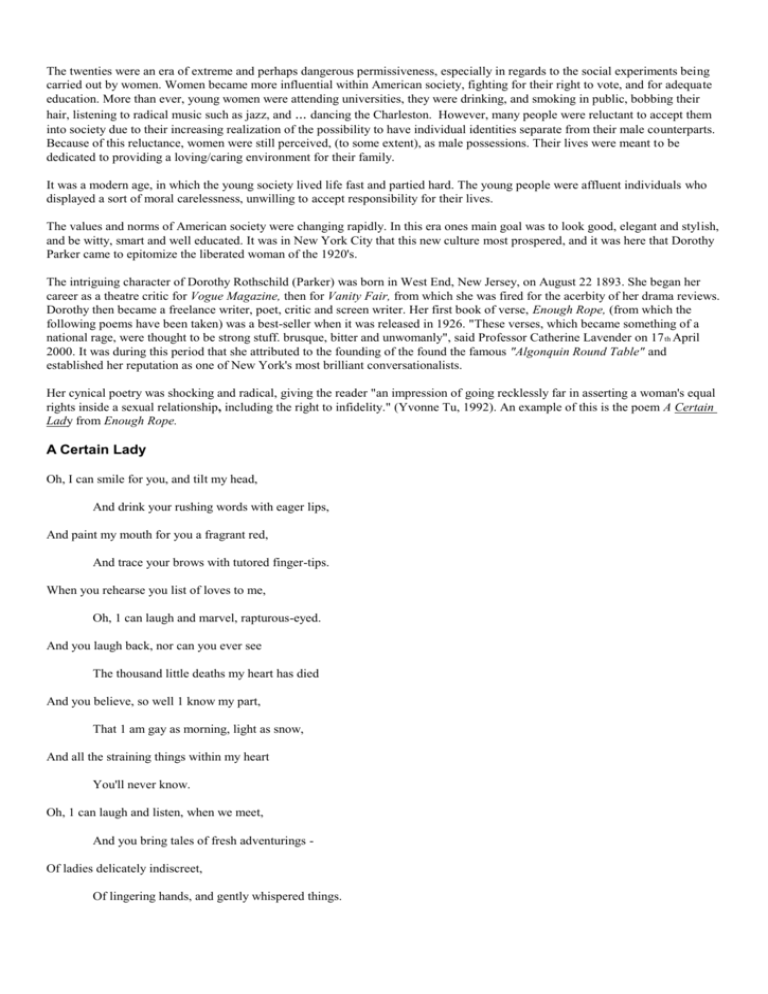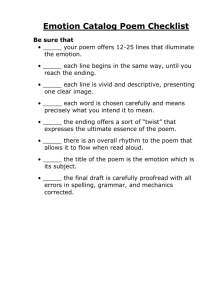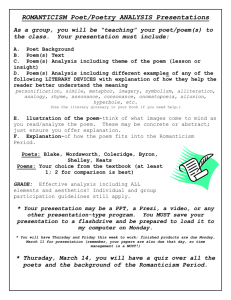
The twenties were an era of extreme and perhaps dangerous permissiveness, especially in regards to the social experiments being
carried out by women. Women became more influential within American society, fighting for their right to vote, and for adequate
education. More than ever, young women were attending universities, they were drinking, and smoking in public, bobbing their
hair, listening to radical music such as jazz, and ... dancing the Charleston. However, many people were reluctant to accept them
into society due to their increasing realization of the possibility to have individual identities separate from their male counterparts.
Because of this reluctance, women were still perceived, (to some extent), as male possessions. Their lives were meant to be
dedicated to providing a loving/caring environment for their family.
It was a modern age, in which the young society lived life fast and partied hard. The young people were affluent individuals who
displayed a sort of moral carelessness, unwilling to accept responsibility for their lives.
The values and norms of American society were changing rapidly. In this era ones main goal was to look good, elegant and stylish,
and be witty, smart and well educated. It was in New York City that this new culture most prospered, and it was here that Dorothy
Parker came to epitomize the liberated woman of the 1920's.
The intriguing character of Dorothy Rothschild (Parker) was born in West End, New Jersey, on August 22 1893. She began her
career as a theatre critic for Vogue Magazine, then for Vanity Fair, from which she was fired for the acerbity of her drama reviews.
Dorothy then became a freelance writer, poet, critic and screen writer. Her first book of verse, Enough Rope, (from which the
following poems have been taken) was a best-seller when it was released in 1926. "These verses, which became something of a
national rage, were thought to be strong stuff. brusque, bitter and unwomanly", said Professor Catherine Lavender on 17 th April
2000. It was during this period that she attributed to the founding of the found the famous "Algonquin Round Table" and
established her reputation as one of New York's most brilliant conversationalists.
Her cynical poetry was shocking and radical, giving the reader "an impression of going recklessly far in asserting a woman's equal
rights inside a sexual relationship, including the right to infidelity." (Yvonne Tu, 1992). An example of this is the poem A Certain
Lady from Enough Rope.
A Certain Lady
Oh, I can smile for you, and tilt my head,
And drink your rushing words with eager lips,
And paint my mouth for you a fragrant red,
And trace your brows with tutored finger-tips.
When you rehearse you list of loves to me,
Oh, 1 can laugh and marvel, rapturous-eyed.
And you laugh back, nor can you ever see
The thousand little deaths my heart has died
And you believe, so well 1 know my part,
That 1 am gay as morning, light as snow,
And all the straining things within my heart
You'll never know.
Oh, 1 can laugh and listen, when we meet,
And you bring tales of fresh adventurings Of ladies delicately indiscreet,
Of lingering hands, and gently whispered things.
And you are pleased with me, and strive anew
To sing me sagas of your late delights.
Thus do you want me - marveling, gay, and true Nor do you see my staring eyes of nights.
And when, in search of novelty, you stray,
Oh, I can kiss you blithely as you go....
And what goes on, my love, while you're away,
You'll never know.
This poem, about 'A Certain Lady' displays a strange, yet truthful account of many relationshins of the 1920's. It tells the story of a
woman hiding her inner feelings in order to please her lover, it also highlights how much he does not/will not know about this
character. "And all the straining things within my heart/You'll never know ... And what goes on, my love, while you're away/You'll
never know". The poem describes the pains she goes through in the relationship, and the facade she portrays. However the
concluding couplet of this poem provides a shocking twist, these lines were considered very 'unwomanly', displaying Parker's
dramatic/feministic attitude and sharp wit, for which she was most famous.
The mood throughout this cynical poem is somewhat somber and lonely, despite the fact
that the poet talks of the 'lady's' gay and happy attitude. The reader may therefore feel some sense of pity for this central character
whose "straining things within my heart", and emotions must be concealed for the sake of her man. The poet does succeed in
evoking mixed emotions from her audience; initially pity for the 'certain lady' depicted in the poem, and then shock (and perhaps
anger) at the suggested actions in the final stanza.
Dorothy Parker uses simple contemporary language that does not require any in-depth study to understand. This was done so that it
would appeal to a larger audience and hence result in greater publicity and recognition in her time. Dorothy's basic use of rhyme
may have also been for ease of reading, - it also helps to create a steady, musical rhythm while reading this poem. The poet used
the technique of alliteration to a small degree in this work, for example in the line "And trace your brows with tutored fingertips"
the majority of stressed syllables begin with "T". This method of word painting enabled Parker's audience to visualize her 'world'
more readily.
Her use of words creates vivid images of the relationship between the two characters, and the actions of the lady. Parker's
extensive use of adjectives is one example of this, eg "And drink your rushing words with eager lips ... Of lingering hands, and
gently whispered things." Dorothy also effectively used similes, "That I am gay as morning, light as snow," and metaphors, "The
thousand little deaths my heart has died" to create an atmosphere with which the reader can relate. She does this to present a
dramatic irony, and also the idea of a somewhat superficial character.
The poem is written in the form ABABCWDEFEF etc. in two stanzas of 12 lines each. Thae characteristis that makes each of
these stanzas particularly effective is the repetition of the same line at the conclusion of each stanza, although in two entirely
different contexts.
Dorothy succeeds in portraying the desperate situation of women in the 1920's; however she also displays her own particular view
of the new liberated/experimental woman of the era. This is done through the thought-provoking final couplet. These lines lend
free reign to the imagination of the audience, as do the deeds that actually "go on, my love, while you're away," that "You'll never
know."
In much of her work Dorothy Parker explored this role of sex and sexual beings in the American society, displayed in "A Certain
Lady". Another example of this is in her poem "General Review of the Sex Situation", also from her book Enough Rope, published
in 1926.
General Review of the Sex Situation
Woman wants monogamy;
Man delights in novelty.
Love is woman's moon and sun;
Man has other forms of fun.
Woman lives but in her lord;
Count to ten, and man is bored.
With this the gist and sum of it,
What earthly good can come of it?
The poem "General Review of the Sex situation" is an amusing and satirical view of the sexual stereotypes within the American
society. It also asks poeple to consider/contemplate the place and value of sex in the community. This puzzling poem also
compares how different genders view SEX.
Dorothy Parker wrote this poem using very abrupt statements; this was one means she used to make her work more shocking,
unexpected and "unwomanly". Her blunt/matter-of-fact tone was very unusual for a woman of the time, as was the material she
discussed quite openly in this poem.
The poet's words are particularly appropriate and vivid in portraying the sexual differences between man and woman. She uses
metaphors to emphasise the role of love in a woman's sexual relationship, "Love is woman's moon and sun;" and "Woman lives but
in her lord;". However the language used to describe the male view of sex is more simplistic, perhaps less mature, "Man has other
forms of fun."... "Count to ten, and man is bored," showing a more primitive approach to sex..
This poem moves rather slowly, in a lyrical/legato manner, with four beats per line. It is effective in emphasizing particular sounds
and words as well as the opposing characters that Dorothy presents.
It is a single stanza poem, written in the form AABBCCDD. This rhyming pattern is particularly effective when stressing important
words within a poem. E.g. "Love is woman's moon and sun;/Man has other forms of fun". This poem is very short which is typical
of Dorothy Parker's work, this is mainly because she was predominantly a conversationalist, famous for her short couplet quotes.
She seemed to believe that shorter works were more memorable and therefore most effective.
This poem reflects the American view of sex in the 1920's in a very stereotypical way, however, there is some degree of truth in the
world and words Dorothy Parker has used in the poem. She succeeds, to a high degree in shocking the reader, making them ask
questions about sex in their ever-changing society, and also about their own view of sex.
Now at Liberty
Little white love, your way you've taken; Now I am left alone, alone.
Little white love, my heart's forsaken. (Whom shall 1 get by telephone?)
Well do 1 know there's no returning;
Once you go out, it's done, it's done.
All of my days are grey with yearning. (Nevertheless, a girl needs fun.)
Little white love, perplexed and weary,
Sadly your banner fluttered down.
Sullen the days, and dreary, dreary.
(Which of the boys is still in town?)
Radiant and sure, you came a-flying; Puzzled, you left on lagging feet.
Slow in my breast, my heart is dying. (Nevertheless, a girl must eat.)
Little white love, I hailed you gladly;
Now I must wave you out of sight.
Ah, but you used me badly, badly.
(Who'd like to take me out tonight?)
All of the blundering words I've spoken, Little white love, forgive, forgive.
Once you went out, my heart fell, broken. (Nevertheless, a girl must live.)
Now at Libetly, like A Certain lady, presents a somewhat ironic perception of an disloyal and promiscuous relationship of the
1920's. It also tells of the emotions felt by a woman at the end of a relationship' feelings of isolation and loneliness. "Little white
love, my heart's forsaken ... all my days are gray with yearning ... slow in my breast, my heart is dying". Such emotions reflect the
fragile, helpless, feminine stereotype of earlier generations.
Throughout this poem, however, Dorothy once again attempts to assert women's equal rights to issues such as infidelity and sexual
experimentation in relationships. She also tries to promote feminine independence, liberty and emotional freedom. Parker's
outspoken ideals are depicted in bracketed lines as blunt and abrupt phrases a technique she also uses in poems such as Chant for
Dark Hours and Verse for a Certain Dog These phrases portray a daring and flirtatious woman, "Nevertheless a girl needs fun ...
which of the boys is still in town?" The lines beginning with Nevertheless show a dramatic contrast to the humble and lonely lover,
depicted throughout the rest of the poem.
The actions of this character, however, are merely suggestive, and the absence of explicitness leaves much to the audiences'
imagination. Conversely, Dorothy's description of the woman's love interest is extremely vivid. The phrase little white love" is
emphasized throughout the poem, repeated at the beginning of all three stanzas. These words conjure up ideals of purity and
innocence, "Radiant and sure, you came aflying", of heroism and bravery. This portrayal seems somewhat contradictory to the
unhappy relationship depicted, one of secrets, deceit, iscolation and mischievous infidelity.
The poem has a fun/cheeky mood yet it also presents the conflicting emotions of the central character. The repetitions of words
such alone and dreary emphasize emotions associated with such words, the rhythmical stresses are also placed on these repeated
words adding to their importance. Yet a sense of mischief is achieves through the lines "Nevertheless, a girl needs fun."
Dorothy was a successful advocate for women's independence in the 1920's, not only through this piece, but all of her works.
Dorothy Parker died in New York City on June 7, 1967. Her works, however, and her amazing contribution to American and
global society are everlasting.
Bibliography
htip://www.dorothyparkernyc.com/index.html
Title: Dot City, Dorothy Parker's New York
Author: Fitzpatrick, B
Date Accessed: 5/09/2001
Last Modified: 2001
hitp://www.library.csi.cuny.edu/dept/history/lavender/386/dparker.html
Title: Dorothy Rothischild Parker 1893-1967
Author: Lavender, Prof. Catherine
Date Accessed: 5/09/2001
Last Modified: 17/4/2000
http://web ages.marshall.edu/-Armada2/ERA.html
Title: Era and Influence of Dorothy Parker
Author: Date Accessed: 5/09/2001
Last Modified:
Beatty, Bradly, Long, Perkins: The American Tradition in Literature sixth edition
Published by Random House, Inc., 1985, New York, USA
Parker, Dorothy:
Parker, Dorothy:
The Portable Dorothy Parker
Published by The Viking Press, 1973, USA
The Penguin Dorothy Parker with introduction by Brendan Gill
Published by Penguin Books, 1982, Great Britain








